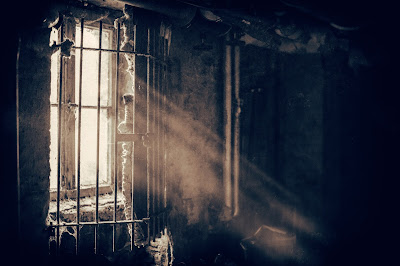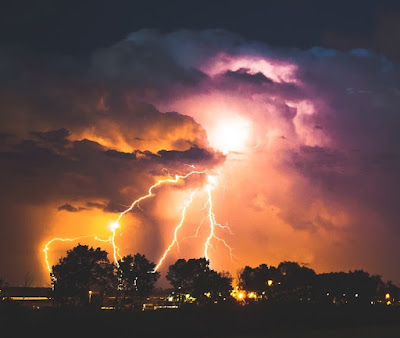It seems as if the relationship between the left-wing and the Jewish population of Judea and Samaria (Yesha) is like that between the first ten sons of the Patriarch Yaakov and their young brother Yosef. Yosef is a dreamer, dreaming of royalty, of redemption, of Messianic times. He dreams of grain sheaves, in which those of his brothers bow down to his own. This is reminiscent of the Song of Redemption (Shir HaMaalot B'shuv), which states both "When G-d returned [us] to Zion, we were like dreamers" and "he will come with joy, carrying his grain sheaves." Yosef dreams that he has a senior role and a great mission, and this causes his brothers jealousy and even hatred.
Weekly Torah insights in the spirit of the teachings of Rav Kook, including video divrei Torah, Parshat HaShavua, Ask the Rabbi Q&As, and short clips of filmed classes
Thursday, November 25, 2021
Vayeshev: Yosef & His Brothers / The National Religious & the Left
Hanuka: Who are the Hellenists of Today?
Answered by three rabbis, translated and adapted by Hillel Fendel
The holiday of Hanuka commemorates both military and spiritual victories, of a national nature, during the Second Temple period. On the one hand, the one-day supply of oil in the Holy Temple miraculously lasted for eight days. On the other hand, the greatly outnumbered Jews also won incredible military victories over their Greek enemies, thus preserving the State of Judea for over 200 years. The war was fought also against the Hellenists [Greek sympathizers, mostly Jews], who sought to secularize the Jewish Nation.
Do the Hellenists of then have a parallel today?
By way of example, let's consider this story: A yeshiva boy named Ariel met his friend Shlomo rushing outside with a menorah, candles, and Hanuka donuts in hand, and asked him where he was headed. "I'm taking part in the 'Light up Tel Aviv' project! You know, we knock on doors, offer to light Hanuka candles with the families, sing Hanuka songs, and bring some G-dliness and Torah into their lives." Ariel was skeptical: "You're going to secular families to celebrate Hanuka?! They're precisely the Hellenists we fought against over 2,000 years ago!"
Is this true? Three rabbis weigh in.
Thursday, November 18, 2021
Rachel Imeinu: The Mother Who Never Stops
by Rav Shimon Cohen, translated by Hillel Fendel
In honor of our Matriarch Rachel, about whom we learn in this week's Torah portion of Vayishlah, we present a collection of thoughts on what she stands for, and what all mothers stand for.
Symbol of Motherhood
Yaakov had four wives and many children, but Rachel – who did not have children for several years – played a very central role in his home. The Midrash teaches: "Rachel was the main pillar of the house, as is written, 'Rachel was barren, akarah' – from the same root as ikarah, primary."
Yaakov explained to Rachel that the fact that she is akarah doesn't mean that she is not ikarah, a primary component of the home; on the contrary. But this did not console Rachel; without her own children, she does not feel like a true partner in the building of the House of Yaakov: "Grant me children, and if not, I am dead" (B'reshit 30,1). Rachel is willing to give her life for her motherhood. We have four Matriarchs – Sarah, Rivka, Leah and Rachel – but among them, the one we see as the symbol of motherhood is none other than Rachel. She merited to be known as Mama Ruchel – and not for naught.
Woman's Two Purposes
19th of Kislev: The Aroma of Awe of G-d
by Oded Mizrahi, translated by Hillel Fendel
A true Hassidic tale, in honor of the 19th of Kislev – the date the first Chabad Rebbe was freed from the Czar's prison.
In the late 18th Century, at the height of the tensions between the young Hassidic movement and its opponents the Misnagdim, the latter did almost everything they could to repress the Hassidim. Some of them even informed on Rebbe Shneur Zalman of Liadi, founder of the Chabad movement, to the Russian authorities. This drastic step was taken according to an official religious dispensation, as part of the excommunication of the Hassidim.
The informers accused the Rebbe of sending money to his followers in the Land of Israel, thus aiding the Ottoman Empire that then ruled the Holy Land and which was a bitter adversary of Czarist Russia. As a result, the Rebbe was arrested during Sukkot of 1798. Only after many efforts on the part of the Hassidim was he released nearly eight weeks later, on the 19th day of Kislev. This date has since been commemorated in Chabad as the "holiday of redemption."
Thursday, November 11, 2021
Pure Faith, Intellectual Faith
by Rav Mishael Dahan zt"l, yeshiva.co, translated by Hillel Fendel
The foundation and ultimate objective of all is the pure faith in He, may His Name be blessed, Who created everything, both hidden and revealed. And as is known, there are two kinds of emuna: emuna that stems from investigation and analysis, and emuna based on that which was handed down through the generations.
Wednesday, November 10, 2021
Vayeitze: Yaakov's Struggle to Become Israel
by Rav Yehuda HaKohen, visionmag.org
Before becoming Israel, Yaakov had to first spend several years in exile learning to be more like Esav.
Thursday, November 4, 2021
Toldot: This Culture Is Not for Us
by Rabbi Netanel Yosifun, yeshiva.co, translated by Hillel Fendel
One of the greatest Talmudic commentators was R. Shmuel Eliezer HaLevi Ideles, known most often as the Maharsha (whose public memorial celebration will be this Wednesday, 5 Kislev). The Maharsha's teachings spread throughout the Diaspora, such that in certain circles the Maharsha's teachings are considered foundational for an understanding of the Gemara, in much that same way that Rashi's teachings are considered foundational explanations.
There is a tradition among Breslav Hasidim to tell stories about the Maharsha as a segula for healing, and even Kabbalists tell the stories that Rabbi Nachman of Breslav would tell about the Maharsha.
As it is known, the Maharsha would waste no time from Torah study every night of the year. He had long hair, and he would tie a rope to the ceiling of the room, so that when he would start to nod off, the rope would pull on his hair and wake him up.
It was said that though the Maharsha studied Torah every single night, there was one night on which he did not – Xmas – on which he would withdraw from his learning and instead deal with his accounting books. One year, the Gentiles informed on the Maharsha saying that he despises X-ians. And the informers brought as proof of their words that every night of the year the Maharsha learns Torah, and only on the night of the birth of their "Messiah" does he withdraw from his studies.
That very year, on Xmas night, the Maharsha was reviewing his expenses as he did every year, when suddenly one of his Torah books fell from the shelf. He picked it up, kissed it, and returned it to its place. A few minutes later, the book fell again – and the Maharsha picked it up, this time placing it more firmly in place. When it then fell a third time, the Maharsha said to himself, "There is a Divine message here." He thereupon opened the holy book and began to search for the message – and precisely at that moment,
Simple, Relaxed Faith – or Stormy, Questioning Faith?
by three rabbis, yeshiva.co, translated by Hillel Fendel
1. Intellect is not Divinity – Rabbi Zalman Gopin, Guiding Rebbe (Mashpia) in Yeshivat Tomchei Tmimim, Kfar Chabad
Emuna [often (mis)translated as "faith"] is something internal and true within one's soul (neshama), and is above the intellect. The answer to the question posed in the headline depends on how that which brings about emuna is understood.







